A Google executive has revealed the terrifyingly fast pace at which artificial intelligence is advancing, predicting AI will have all the capabilities that humans do within the next decade.
Demis Hassabis, the CEO of DeepMind at Google, shared on a Sunday’s episode of 60 Minutes he believes scientists are on track to create Artificial General Intelligence (AGI) within the next five to ten years.
AGI refers to artificial intelligence with software that rivals the cognitive ability of a human.
It’s a hypothetical stage of AI advancement, as currently the technology can only pull from existing content and doesn’t have the curiosity or imagination to create new concepts like humans do.
However, Hassabis believes that AGI is on track to become ’embedded’ in our daily lives by 2035.
‘We’ll have a system that really understands everything around you in very nuanced and deep ways,’ Hassabis told 60 Minutes host Scott Pelley.
Hassabis said he expects AI will have the same capabilities as humans by 2035, and he anticipates a ‘breakthrough in robotics’ where robots can begin to mimic human activity.
The AI expert said that today’s technology hasn’t yet achieved ‘consciousness’ and revealed that it’s a possibility that AI bots may eventually develop self-awareness.
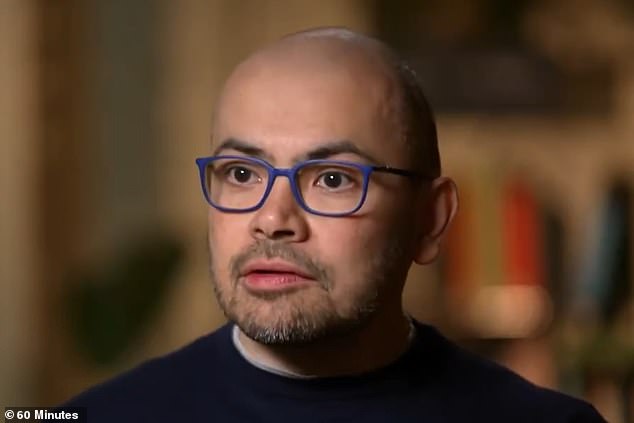
Demis Hassabis, the CEO of DeepMind at Google, revealed during an interview with 60 Minutes that he believes Artificial General Intelligence is possible within the next decade
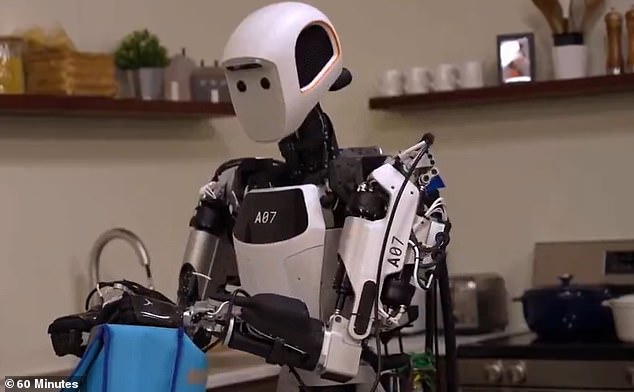
AGI refers to artificial intelligence that has similar capabilities to humans. Hassabis believes that the technology is around the corner
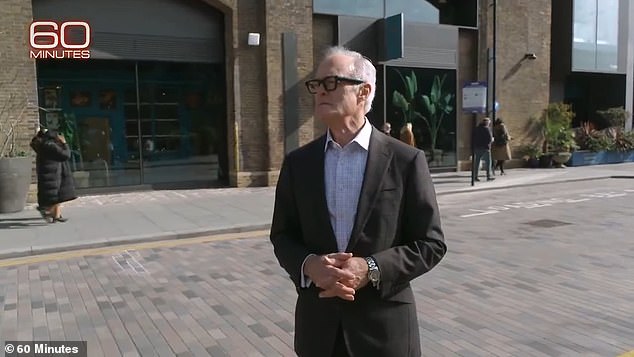
60 Minutes host Scott Pelley used AI glasses during the interview, which informed him on his surroundings in real time
He added that if a machine does become self-aware, it may be difficult for humans to recognize it immediately.
‘With machines – they’re running on silicon, so even if they exhibit the same behaviors, and even if they say the same things, it doesn’t necessarily mean that this sensation of consciousness that we have is the same thing they will have,’ Hassabis added.
Despite the societal fear around AI advancement, Hassabis has an optimistic perspective on the future.
He won the Nobel Prize in Chemistry last year for his work in designing AlphaFold, an AI tool that predicts the structure of proteins.
‘Proteins are the basic building blocks of life,’ Hassabis declared in his 60 Minutes interview.
However, protein structures are so complex that less than one percent of structures are known to scientists.
Mapping these structures has typically taken scientists years to decode – until now. AlphaFold was able to map 200 million protein structures in one year.
Hassabis said that this technology can rapidly accelerate drug advancement. He revealed that, with the help of AI, scientists can one day cure all diseases.
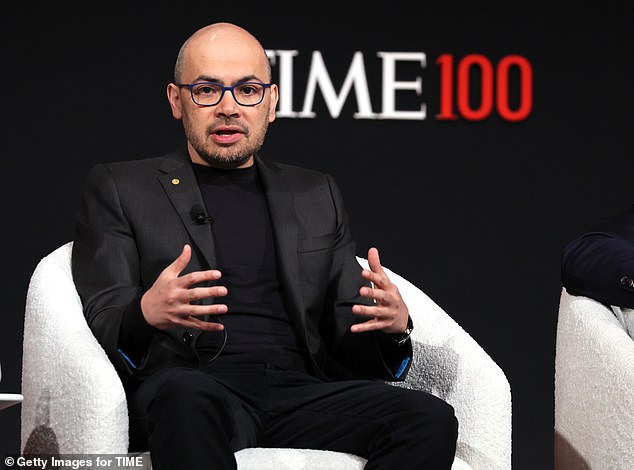
Hassabis revealed that currently. AI technology doesn’t have self-awareness and can’t exhibit curiosity, but those advancements are possible in the near future
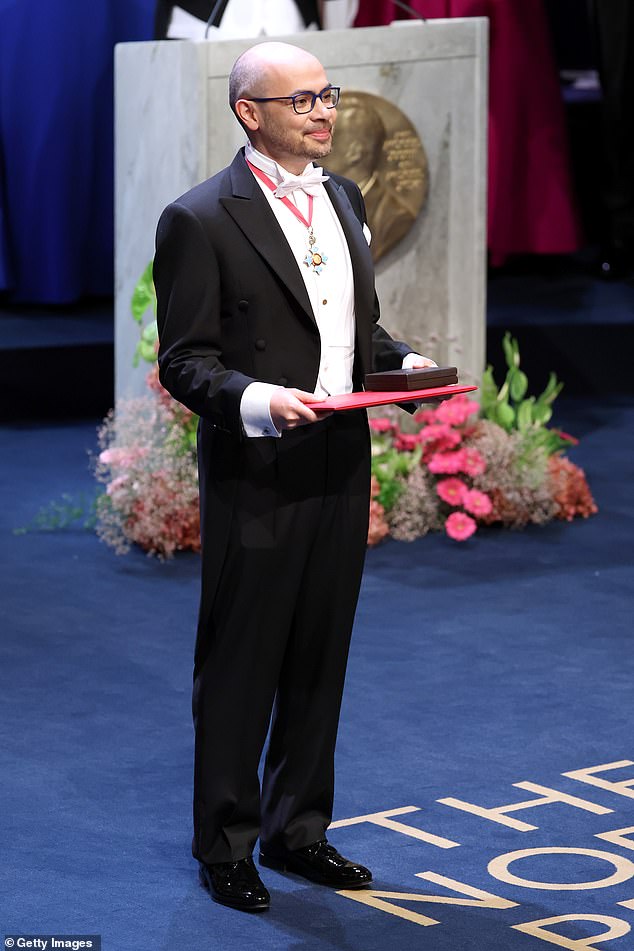
The executive added that there are reasons to be optimistic about AI, like the possibilities of ending diseases and the climate crisis
‘I think that’s within reach, maybe within the next decade or so. I don’t see why not,’ Hassabis added.
Hassabis’ revolutionary work with DeepMind earned him a spot on Time’s 100 Most Influential People of 2025.
He told Time that if his AI models continue to progress, it will be the end of human diseases and the climate crisis.
‘I think some of the biggest problems that face us today as a society, whether that’s climate or disease, will be helped by AI solutions,’ Hassabis told the publication.
‘I’d be very worried about society today if I didn’t know that something as transformative as AI was coming down the line.’
However, he acknowledged that the world of AI could cause destruction, especially if international cooperation isn’t achieved.
He told Time that AI models need to be tested for dangerous capabilities, and legal guardrails need to be implemented to prevent the technology from falling into the wrong hands.
Hassabis added that it’s also ‘extremely difficult’ to monitor AI advancement to prevent systems from acting autonomously.
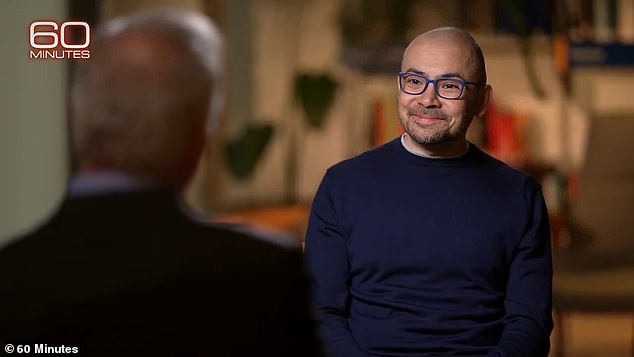
Hassabis’ work at DeepMind has resulted in advanced AI models that can decipher complex protein structures and revolutionize the future of human health
Other AI experts have offered a more pessimistic perspective on the future, with computer scientist Geoffrey Hinton predicting that AI will wipe out the human race.
Hinton is known as the ‘Godfather of AI’ for his work creating the foundations for machine learning.
He was a recipient of the Nobel Prize in Physics, but recently resigned from his job at Google out of concern that AI advancement was going in a dangerous direction.
‘The situation we’re in now is that most of the experts in the field think that sometime, within probably the next 20 years, we’re going to develop AIs that are smarter than people,’ Hinton revealed in an interview with the BBC.
‘And that’s a very scary thought,’ he added.

Microsoft founder Bill Gates offered a different perspective on AI, acknowledging the technology’s potential to aid human health, but warning against the immense scale of danger to its advancement
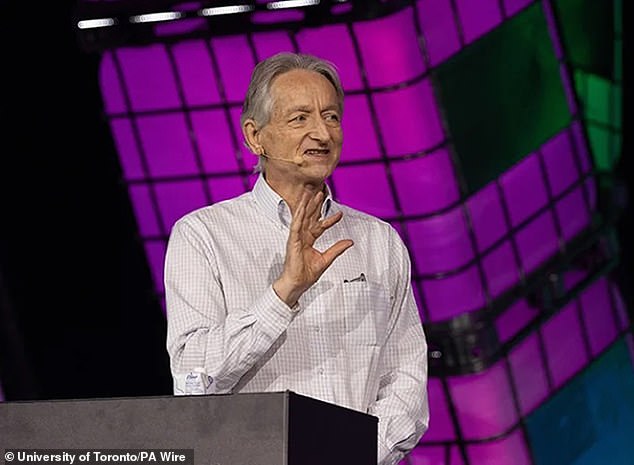
The ‘Godfather of AI’ Geoffrey Hinton warned during a recent interview that if AI isn’t closely monitored, it could lead to the destruction of the human race
Hinton said that whether AI helps or hurts society in the future is dependent on how the government regulates it.
‘We need regulations to stop people using it for bad things, and we don’t appear to have those kinds of political systems in place at present,’ he explained.
Microsoft founder Bill Gates offered a similar concern in a recent interview with Jimmy Fallon.
‘I love the way it’ll drive innovation forward, but I think it’s a little bit unknown if we’ll be able to shape it. And so, legitimately, people are like “wow, this is a bit scary.” It’s completely new territory,’ he explained.







